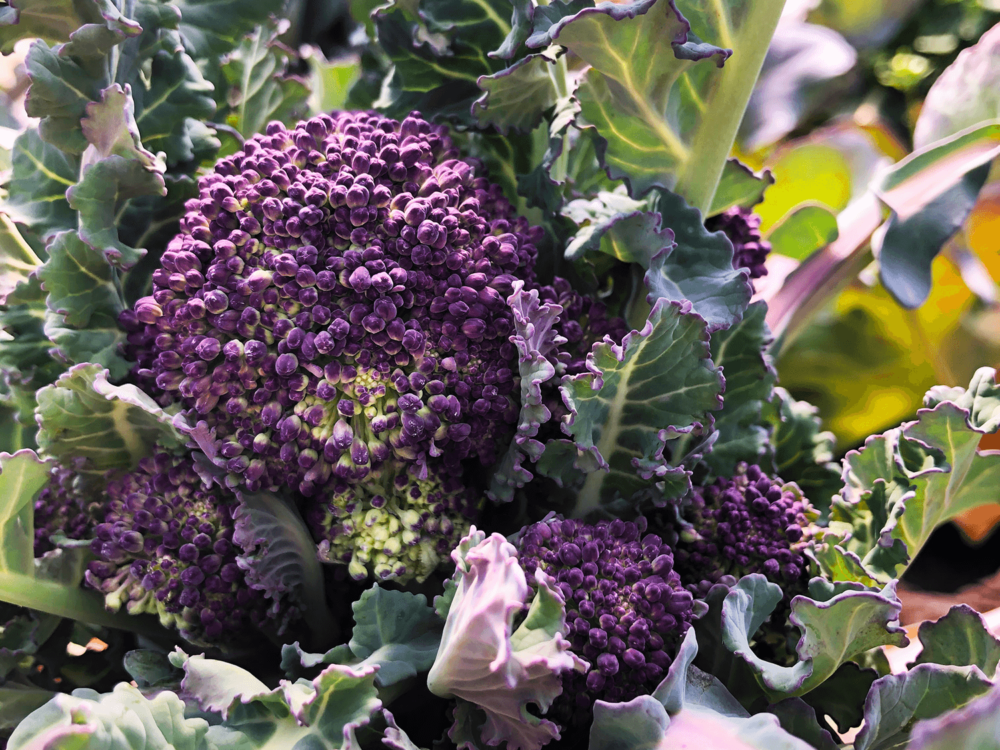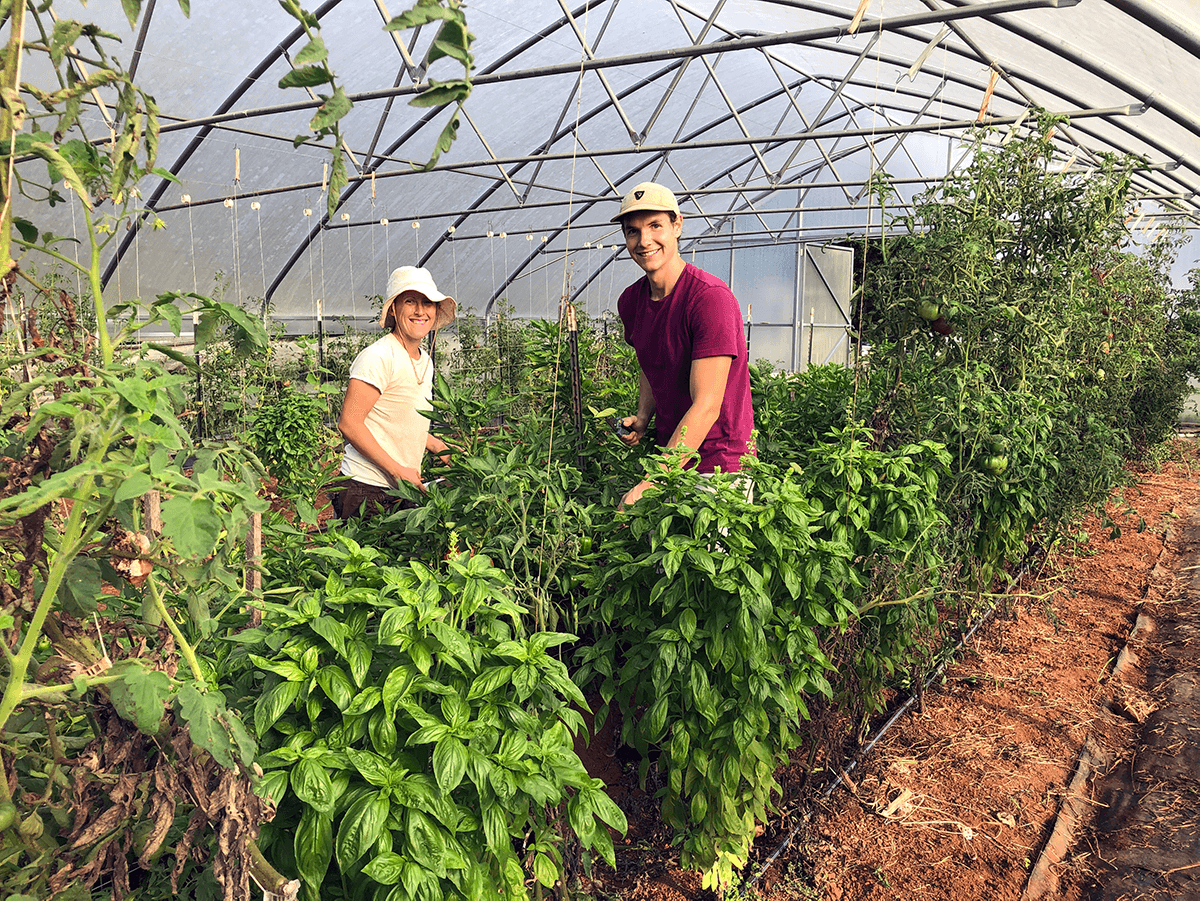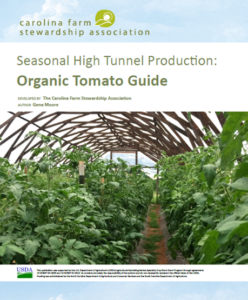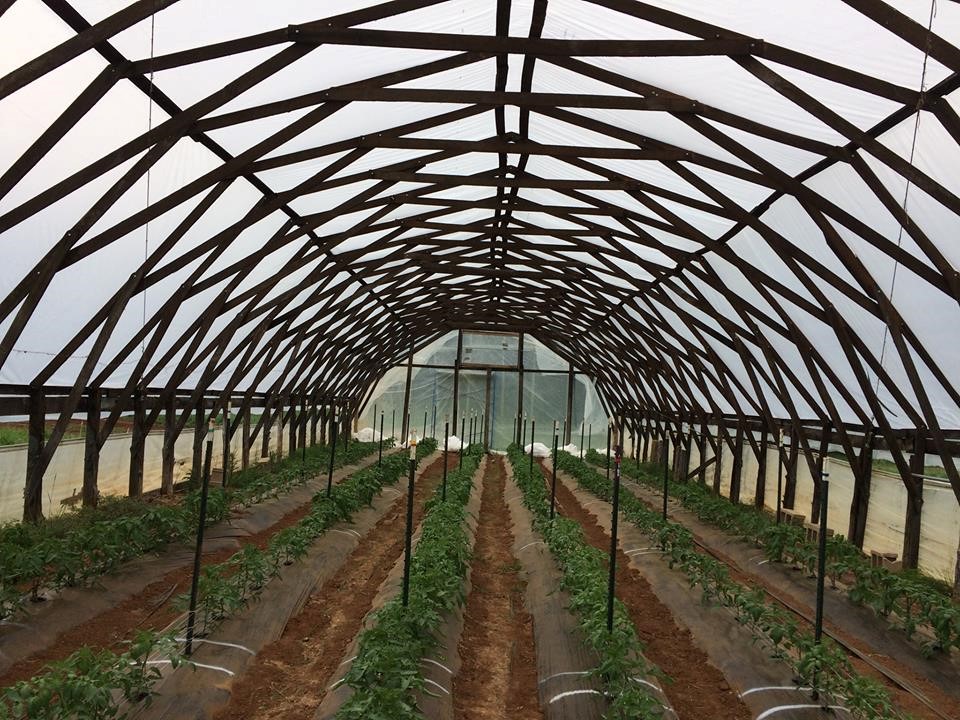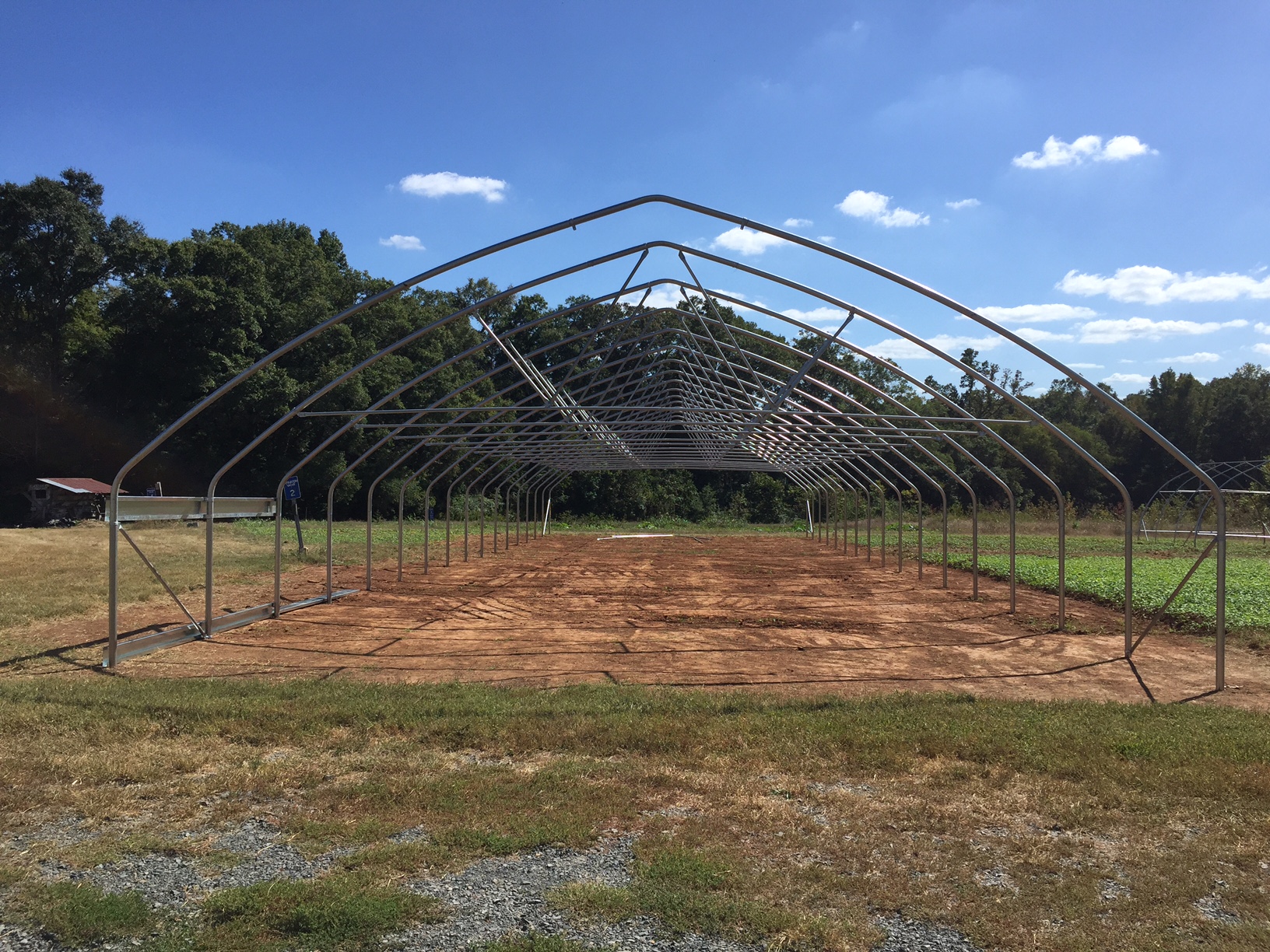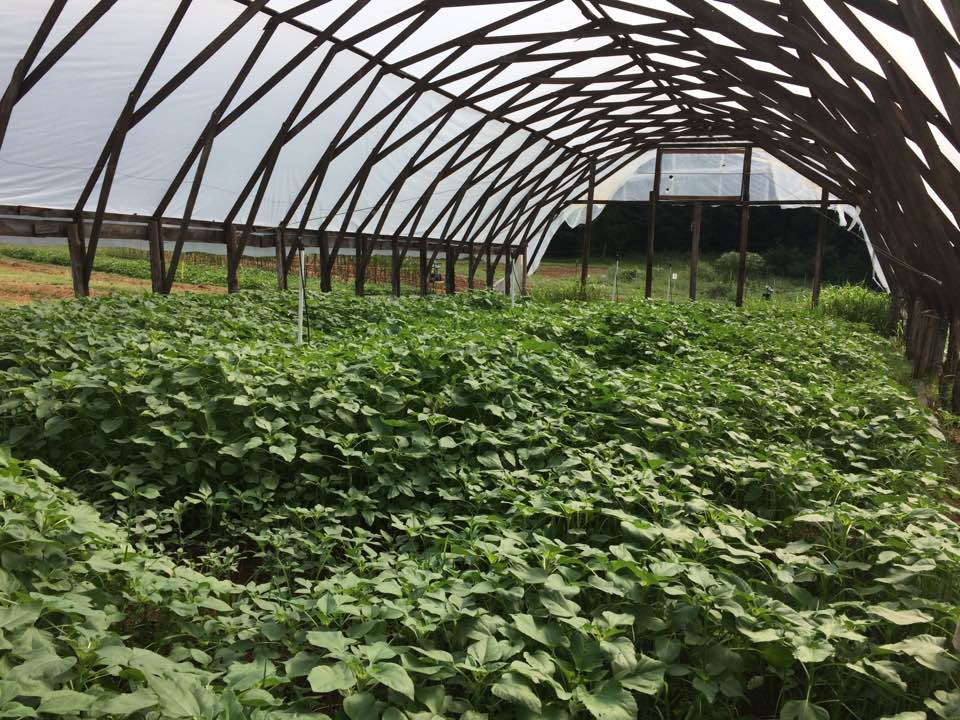by Gena Moore, CFSA Organic Research Coordinator | Monday, May 20, 2019 –
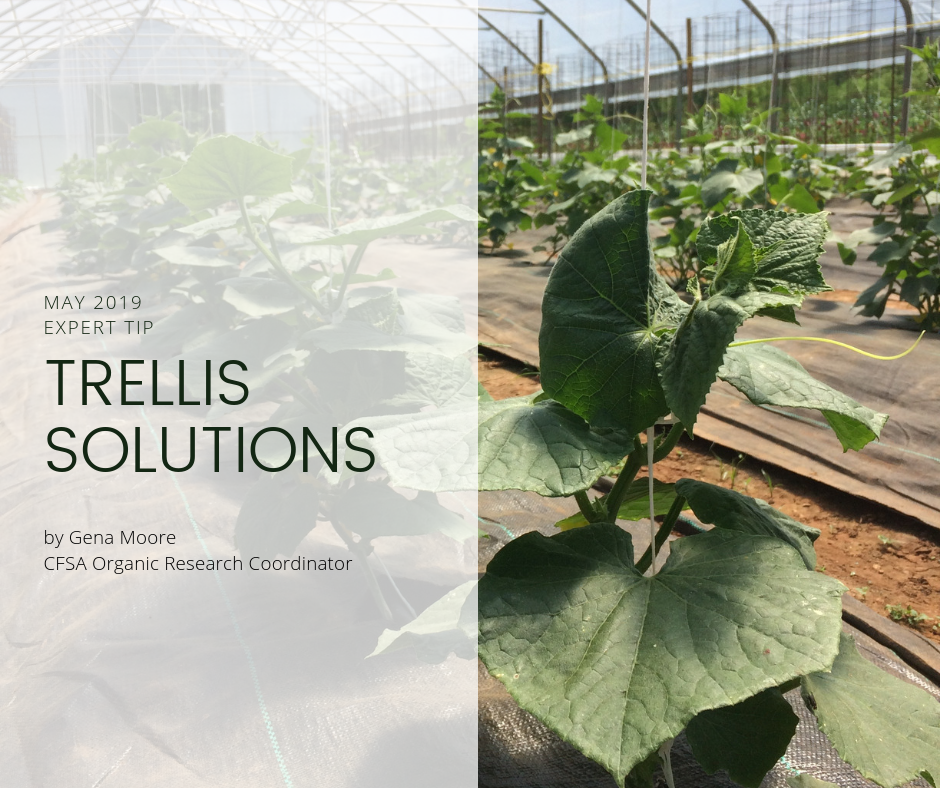
Trellising is standard on most farms for a variety of reasons. Providing plant support can decrease disease, keep plants and fruit clean, increase efficient use of space and even maximize yields. Organic standards encourage farmers to use preventative measures, like trellising, to mitigate disease and pests. Crops commonly trellised are tomatoes, cucumbers, peppers, small melons, pole beans, snap peas, and flowers.
It’s important to choose the right trellising system for your crop and farm. Some factors to consider are:
- Installation costs
- Maintenance requirements
- Constraints on plant growth
- Type of production
Keep reading to find out more about different trellising methods and which ones are right for you.
(more…)


